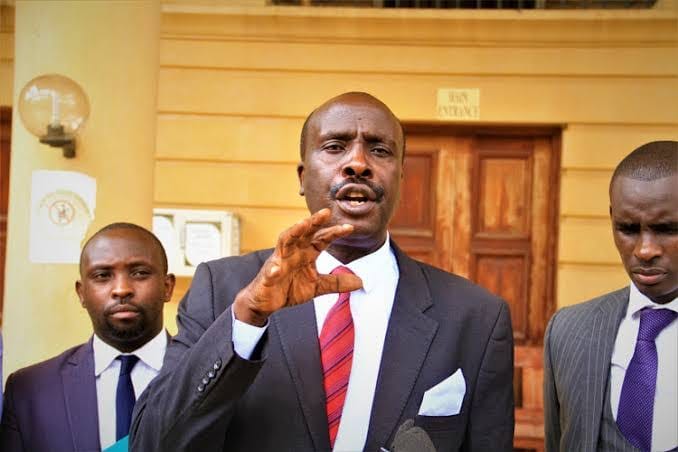A Nairobi-based lobby group has issued a stern warning to the Ethics and Anti-Corruption Commission (EACC), threatening to sue the anti-graft body for allegedly interfering with the constitutional mandate of the Director of Public Prosecutions (DPP).
Speaking outside the Milimani Law Courts, lawyers Danstan Omari and Shadrack Wambui, acting on behalf of Sheria Mtaani, announced that the group will be filing a legal application to bar EACC from what they termed as a persistent campaign against the Office of the DPP over case management and prosecution decisions.
“EACC has continued to fight the office of ODPP concerning the prosecution of cases filed in court,” said Omari, accusing the commission of misleading the public and overstepping its constitutional boundaries.
The lawyers emphasized that under Article 157 of the 2010 Constitution, only the Office of the DPP has the exclusive mandate to prosecute cases investigated by any agency, including EACC, the Directorate of Criminal Investigations (DCI), the Independent Policing Oversight Authority (IPOA), and Kenya Wildlife Service (KWS).
“The DPP’s role is strictly to prosecute. The EACC, just like the DCI, can only investigate, it can never be allowed to prosecute. This is the global best practice,” said Omari.
Omari further noted that while investigating agencies can forward files to the DPP with recommendations, it is solely the DPP who decides whether to proceed with charges or to return the file for further investigation.
“The DPP under Article 157(11) of the Constitution has the power to recommend prosecution or withdraw a case under the leave of the court,” he explained.
The lobby group has taken issue with what it says is a pattern by EACC: forwarding case files to the DPP and then holding press conferences the very next day to accuse the DPP of inaction.
“The perception that has been given to the public by EACC is totally wrong,” said Wambui.
Omari also clarified recent public claims about the DPP arbitrarily dropping cases, noting that in several instances, courts, not the DPP, have blocked attempts to withdraw cases.
“The narrative that the DPP is recklessly withdrawing matters is misleading. In fact, in some instances, courts have rejected applications for withdrawal. In such cases, the DPP has appealed but lost. Ultimately, it is the court, not the DPP, that makes the final decision on withdrawals,” Omari stated.
He further reminded the public of the reforms brought in by the 2010 Constitution, which separated prosecutorial powers from investigative functions.
“Before the promulgation of the 2010 Constitution, the DPP’s office was under the Attorney General. Kenyans demanded change, saying a prosecutor could not also be an investigator. That is why the independent Office of the DPP was created under Article 157 of the Constitution,” he said.
Omari emphasized that the DPP, currently Renson Ingonga, enjoys an eight-year non-renewable term and cannot be directed by any person or authority in the execution of his duties.
He dismissed recent criticism and petitions filed against Ingonga, noting that “several petitions filed against the DPP at the Public Service Commission have since been withdrawn for lack of merit.”
In a statement, Omari did not mince his words: “The weakest link in the fight against corruption is at the EACC, not the DPP. The DPP should be given space to discharge his constitutional mandate without undue interference.”


